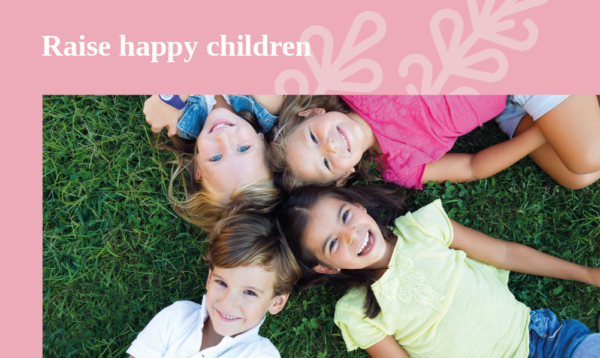Joy is a feeling that accompanies success and love. It’s a universal feeling and brings us all closer together. Suppose we want to raise an innately happy child. In that case, we need to raise him without oppression and ensure in his life the presence of those elements (e.g., confirmation, security, warmth, care, interest, etc.) so that it is as “full” spiritually and emotionally. A happy child who loves those around him has laid the best foundations for becoming a complete human being.
When children are burdened with their parents’ negative feelings, they are not free to live carefree and happy.
“A child is happy when his parents are happy.”
Above all, it would be good for parents to be happy, thus conveying the child the appetite and love for life. We choose whether to be happy. Happiness is not a constant pretend smile on our face, but an attitude of life, calmness, and serenity, attempting to face reality with confidence and optimism.
Repulsive emotions, emotional blockages, and holy wounds take us away from happiness. If we free ourselves from negative emotions, talk about what concerns us, cry, scream, joy will be reborn. We can only feel joy because we live.
Let us appreciate and encourage the efforts made by children. By stopping to correct what “wrong” they are doing, we will discover the beautiful and positive things they do. The exhortations they offer us every day are too many, as long as we perceive them. Success usually increases the child’s desire to go further and continue the effort. If they do not feel proud or underestimate their achievements, they will not have the incentive to persevere.
Let’s not cling to misery. We are all faced with trials, but if we try to see them from their positive point of view, laugh, devise solutions, we will be able to “get up” and move on.
Let us express ourselves as often as we can with tender words. Absorbed by our jobs, the household, and the worries, we forget something therapeutic yet straightforward. Who didn’t make him happy with a kiss, a tight hug, an “I love you,” a “You make me smile”?
The children run, shout, laugh loudly, and the parents and teachers interrupt them, calling, “Be careful, quiet, stop at last!” Why stop the happy, lively activities of cheerful children? The child needs to feel happy to grow up well. How do we become serious adults who have forgotten to laugh and play?
“A child laughs an average of 400 times a day, while an adult 15. Where did the other 385 times go?”
Let us heal our childhood wounds first, and we will be able to let ourselves play the children’s simple games, allow ourselves to lose control, laugh and shout freely, roll down, dream, imagine.
Let’s be happy with the kids. Let’s make a fuss with them, let’s show our joy with a lot of noise, jumping, lifting them, hugging them tightly. Let’s be kids with them… Let’s try to see the world through the child’s eyes as if we’re seeing it all for the first time. Let’s admire the falling leaves, the flowers that bloom, the birds that fly, the stars in the sky, the rainbow.
When I was little, my father used to take me to school every morning. On rainy days, he would hug me and, as we walked, he would sing to me, “It’s raining, it’s snowing, the marbles are watering…”. He taught me to enjoy the rain, not to let my mood spoil because of a “mug” day. In all-natural phenomena, in what seems negative at first, there is a beauty, a positive element as long as we discover it.
Let’s find meaning again in the little ones, the simple ones, every day, and the beautiful things surrounding us. Let’s show our gratitude and appreciation for them. We will thus teach our children a great lesson, learn to appreciate and be happy with what they have, and learn that material things do not bring happiness.
Let’s say more often “I love you,” “I’m happy to wake up next to you,” “Your smile makes my day,” let’s embrace him, let’s kiss him, let’s look at him, let’s admire him; and so the child will believe and love what he is, not for what he can do, but for what he is: a wonderful, unique, lovable creature.
Let’s deal with whatever emotional problems we carry and prevent us from getting closer to happiness and let go.
A parent full of inner joy transmits it to his children, which is the most precious gift he can give them.


